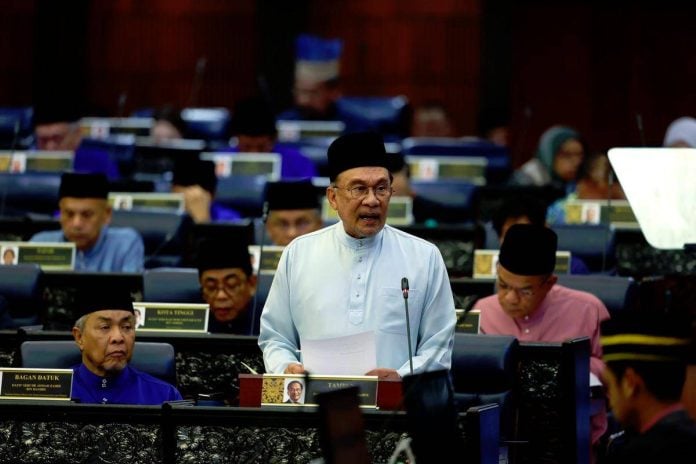PETALING JAYA: Prime Minister Datuk Seri Anwar Ibrahim today unveiled major allocations for Malaysia’s higher education sector under Budget 2026, pledging to make tertiary education more accessible, equitable and future-ready for all students.
Anwar said the Higher Education Ministry will receive RM18.6 billion next year, with over RM400 million set aside to upgrade facilities and replace outdated equipment in public universities, polytechnics and community colleges.
He emphasised that no young Malaysian should be denied the chance to study due to financial hardship, describing education as “a key investment in securing a better future.”
To assist underprivileged youth, the Government and Government-Linked Investment Companies (GLICs) will allocate RM4.4 billion for scholarships, student loans, and education allowances.
“The private sector will also receive double tax deductions on scholarship expenses for eligible students.
“This incentive covers Bachelor’s Degree scholarships and extends to professional qualifications in key fields such as ICT, engineering, accounting, and finance,” he said.
Meanwhile, Permodalan Nasional Berhad’s (PNB) Celik MADANI Programme will continue, providing an initial investment of RM50 in ASB or ASM accounts for 200,000 students, along with an additional 5 billion units for ASB 3 Didik and ASM.
To address student welfare on campuses, the Ikhtiar Dapur MADANI initiative, worth RM26 million, will supply cooking tools and food provisions to students.
This will be complemented by CSR contributions from private firms under the expanded Dapur MADANI programme, which provides food assistance to students in need.
In addition, the MySiswa Job On Campus Programme, with a RM20 million allocation, will create part-time employment opportunities for students to earn income and gain entrepreneurial skills while studying.
Recognising the student housing shortage, the Employees Provident Fund (KWSP) will partner with Universiti Malaya (UM) to construct 1,000 residential units at the campus — a move Anwar said could serve as a model for other universities.
Beginning 2026, students from households earning below RM2,750 a month will be eligible for free education under the National Higher Education Fund Corporation (PTPTN) scheme.
Anwar said the initiative would benefit 5,800 students from low-income families studying at public universities (IPTA), with an annual allocation of RM120 million.
He added that repayment exemptions will also apply to First-Class Honours graduates from low- and middle-income families, benefiting around 6,000 borrowers each year at a cost of RM90 million.
However, the Government will impose travel restrictions on borrowers working abroad who are financially able but fail to repay their PTPTN loans.
“The Government will increase 1,500 degree placements across 10 key fields in five research universities, including law, accounting, economics, banking, Islamic finance, artificial intelligence, and languages, allowing more STPM graduates to pursue higher education.
“In the medical sector, two public-private partnership projects — UKM Health Technopolis and Universiti Malaya Health Metropolis — have been approved to enhance medical training and improve access to modern healthcare in Petaling Jaya and Kuala Lumpur,” he said.
Public university teaching hospitals will also be allowed to set up endowment funds to receive donations, which will qualify for income tax deductions. All contributions and generated income will be fully tax-exempt.
The aeronautics sector will receive RM16 million to strengthen innovation and training. Universiti Malaysia Perlis (UniMAP) will develop the country’s first low-altitude flight testing facility, the Air Space Sandbox, in Sungai Batu Pahat, Perlis — crucial for logistics, smart agriculture, and security applications.
Meanwhile, Universiti Tun Hussein Onn Malaysia (UTHM) will become the first university in ASEAN with its own airport, designed to support the maritime aviation industry and train local amphibious pilots.








